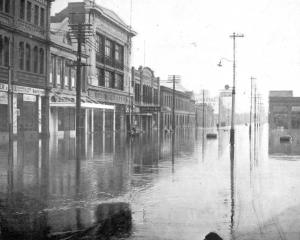
"When's it going to end," was a common complaint heard around Dunedin petrol stations in the first week of March 2000.

At the same time, 96-octane was selling for $1.08 per litre.
There was so much concern about the skyrocketing price, it made front-page headlines in the Otago Daily Times.
Just over six months earlier, it had only been 80c per litre, and consumers and businesses were concerned about the major impacts that the 30% price hike would have on the economy.
These rising fuel costs increased transportation expenses, which got passed on to consumers and elevated the prices of essential goods and services.
At the time, BP managing director Greg Larsen said the price increases were due to "the continuing increase in the cost of crude oil on the global market, with Dubai crude now trading at about $US27 a barrel".
It was also suspected that petrol prices would remain high "for a while" because of the low stock of oil in the United States and the reluctance of people to buy oil when prices were so high.
A solution floated at the time, was for the Organisation of Petroleum Exporting Countries (Opec) to release some more oil stock, which would eventually bring prices back down.
But instead of getting better, the situation grew worse.
By August 2000, it had gone up to $1.21 per litre.
Eventually, the highest price in New Zealand history was reached in May 2022, when the cost rose to $3.15 for a litre of 91-octane, in Auckland.
That led to the government taking the unprecedented step of reducing the tax on petrol, road-user charges and public transport fares.
There are many reasons behind the cost increases.
More recently, global demand has surged after a slump during the Covid-19 pandemic. Sanctions on Russia mean there is less oil available in the global market, our exchange rate is lower, shipping and other costs are up, and the Emissions Trading Scheme’s levy on fuel, and GST, are adding more to pump prices than before.
The upside is, rising fuel costs have contributed to a movement towards more environmentally friendly travel, with many travellers opting for electric vehicles instead of internal combustion engines, and the creation of cycleways around the country to encourage more people to ride bicycles.
At the moment, 91-octane is selling for between $2.56.9 per litre and $2.91.9 per litre in Dunedin.
How much will a litre of 91-octane cost in 25 years?












